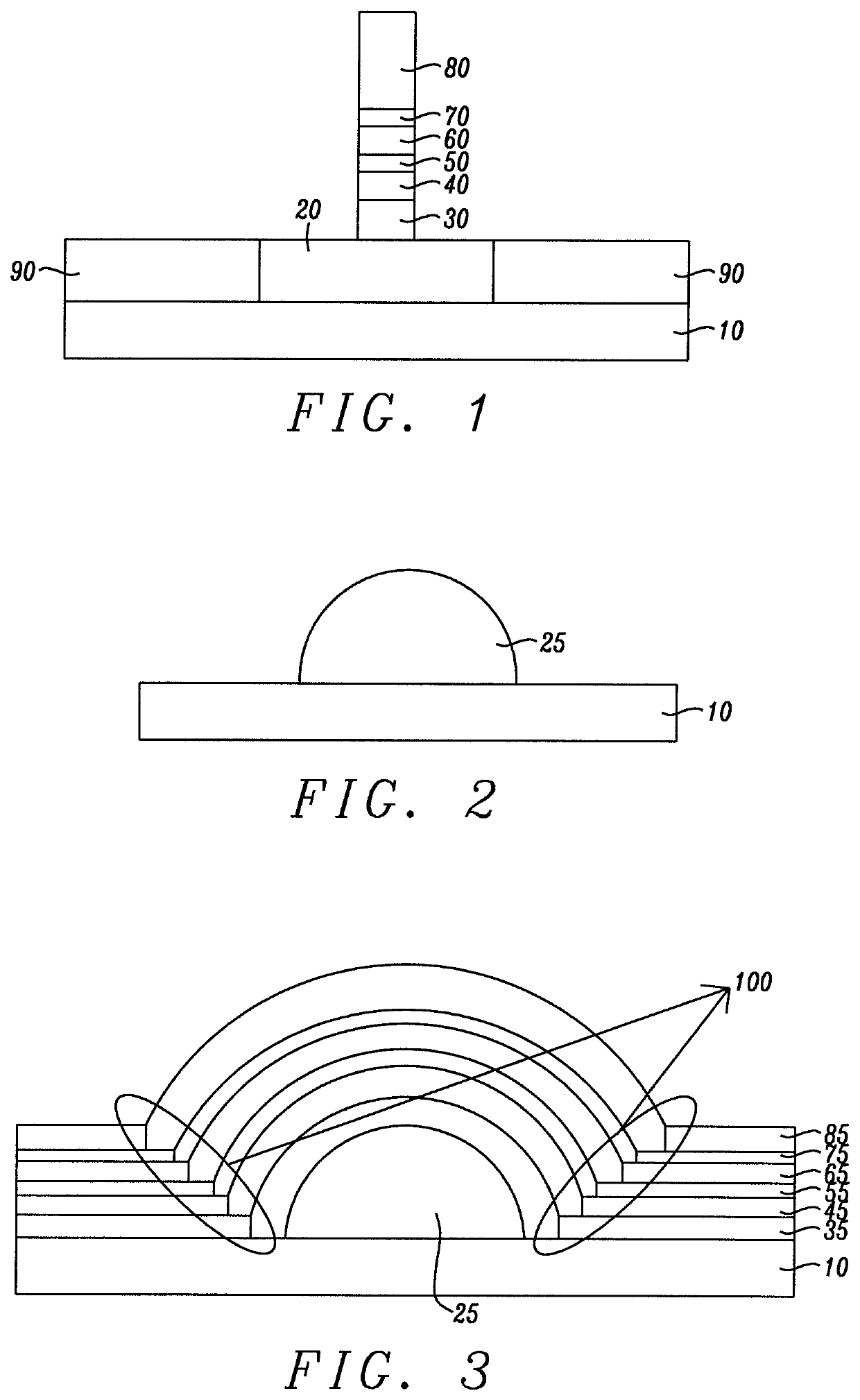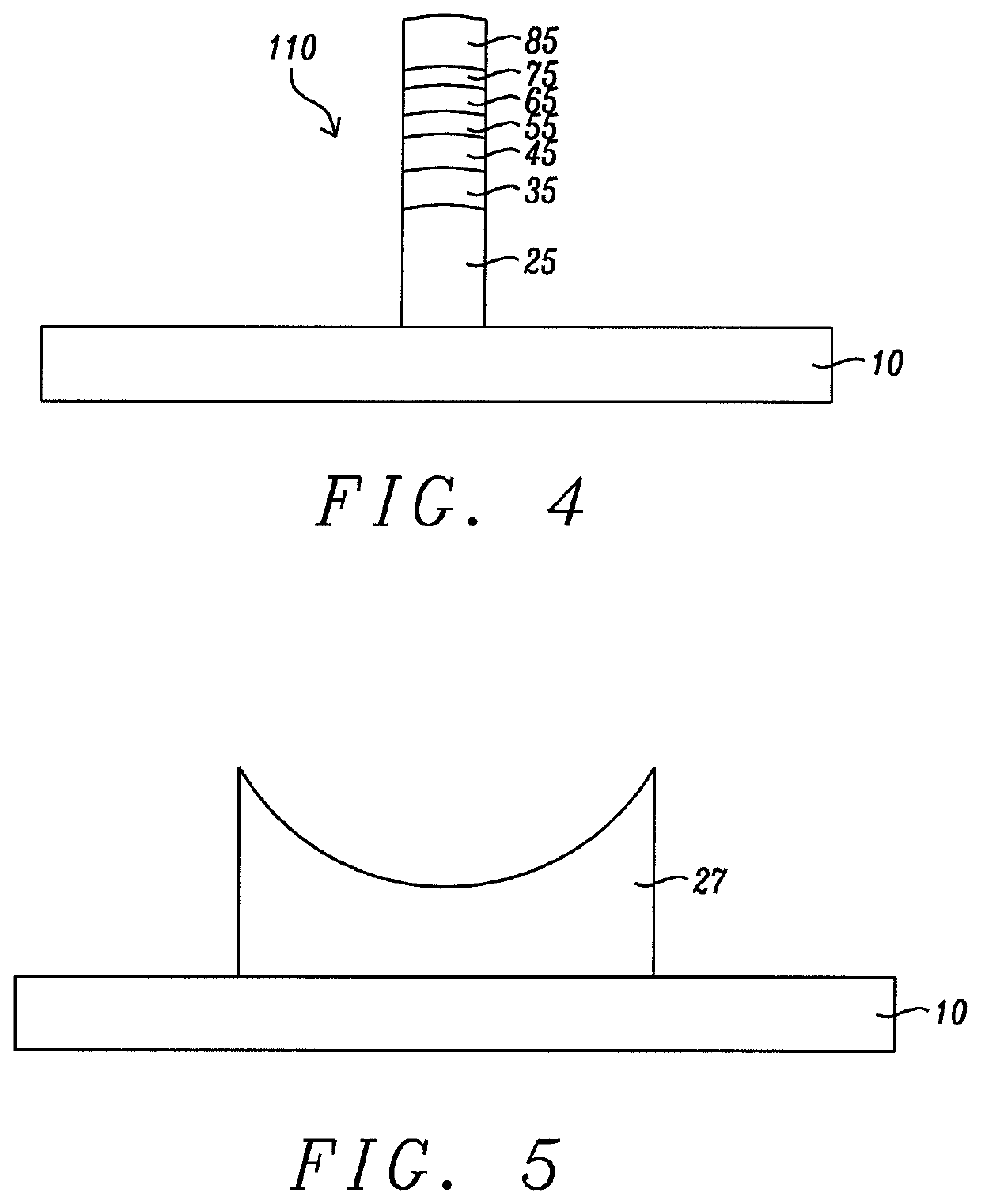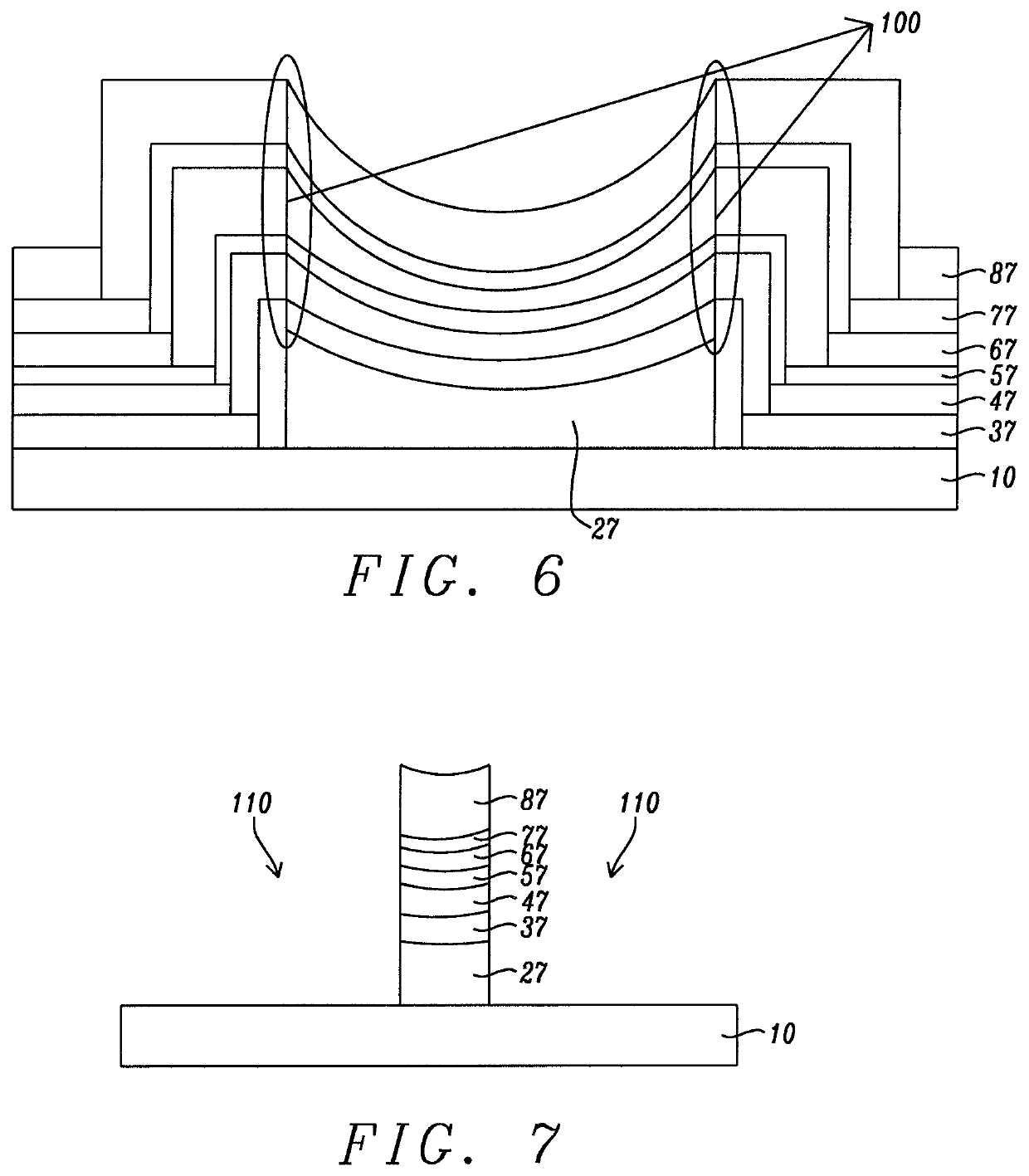MTJ device performance by controlling device shape
a technology of mtj device and shape, which is applied in the direction of magnetic field controlled resistors, galvano-magnetic material selection, magnetic bodies, etc., can solve the problems of not using the same methods or producing the same effects, difficult to achieve high tmr (tunneling magneto resistance) values, and significant structure strain, etc., to improve the performance of layered mtj devices, reduce interfacial defect concentration, and improve lattice epitaxy
- Summary
- Abstract
- Description
- Claims
- Application Information
AI Technical Summary
Benefits of technology
Problems solved by technology
Method used
Image
Examples
Embodiment Construction
[0021]Referring first to FIG. 1, there is shown a standard patterned MTJ (Magnetic Tunneling Junction) layered device such as is commonly used in a random access memory (RAM) array. Although a specific substrate is not necessary to define the device, for specificity we will consider the device to be formed on a functional substrate, such as a CMOS substrate, that may already include circuitry and conducting vias to access various elements of the devices in a RAM array.
[0022]The device is formed by first providing a CMOS substrate 10 on which to form it. A blanket bottom electrode (BE) 20 is deposited on the CMOS substrate so that it properly contacts the vias in that substrate. There is then deposited on top of the bottom electrode 20, in succession, a series of horizontal layers that will comprise the MTJ stack. Those layers include, a seed layer 30, a pinned magnetic layer 40, a tunnel barrier layer 50, a free magnetic layer 60 and capping layer 70. A hard mask 80 is deposited on ...
PUM
| Property | Measurement | Unit |
|---|---|---|
| width | aaaaa | aaaaa |
| width | aaaaa | aaaaa |
| width | aaaaa | aaaaa |
Abstract
Description
Claims
Application Information
 Login to View More
Login to View More - R&D
- Intellectual Property
- Life Sciences
- Materials
- Tech Scout
- Unparalleled Data Quality
- Higher Quality Content
- 60% Fewer Hallucinations
Browse by: Latest US Patents, China's latest patents, Technical Efficacy Thesaurus, Application Domain, Technology Topic, Popular Technical Reports.
© 2025 PatSnap. All rights reserved.Legal|Privacy policy|Modern Slavery Act Transparency Statement|Sitemap|About US| Contact US: help@patsnap.com



